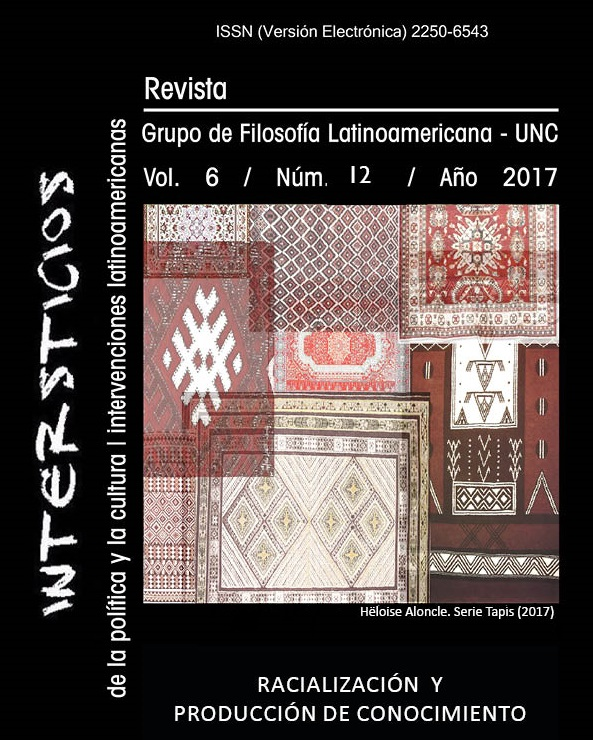Another Kant after Fanon and Deleuze
Keywords:
Kant, Fanon, Deleuze/Guattari, trascendentalityAbstract
Could Kant take on the racism of his universalist morality? Could he measure the historical implication of the exclusion of the "rude men of Tierra del Fuego or New Holand" from any moral, historical and political sphere? Could he face the dictates of empirical science and thus avoid the racist nature of his anthropological and geographical conception? Moved by these questions, we join here the effort to research European philosophers (mainly men) who assign a racist logical configuration to their discourses We will focus on Kant. The resonances between the Fanon´s and Deleuze's (with or without Guatari) writings, constitute for us the motive from which to show racism in Kant philosophy. We think Fanon and Deleuze philosophies reinforced each other when they discuss Kantian transcendental philosophy and its establishment of a regime of onto-anthropological denial based on logical-formal imperatives. In this sense, we will not focus on Kantian anthropology, as it is usual in many essays. On the other hand, we consider that the transcendental condition goes further beyond natural racist conditions, to declare moral rectitude as the exclusive property of white men and, of course, as the historical-cultural referential horizon of one and only one history (History with capital letters).Downloads
Downloads
Published
Issue
Section
License
Authors who have publications with this journal agree to the following terms:
a. Authors will retain their copyright and grant the journal the right of first publication of their work, which will simultaneously be subject to the Creative Commons Attribution License that allows third parties to share the work as long as its author and first publication in this journal are indicated.
b. Authors may adopt other non-exclusive license agreements for distribution of the published version of the work (e.g., deposit it in an institutional telematic archive or publish it in a monographic volume) as long as the initial publication in this journal is indicated.
c. Authors are allowed and encouraged to disseminate their work through the Internet (e.g., in institutional telematic archives or on their web page) after the publication process, which may produce interesting exchanges and increase citations of the published work (see The effect of open access).


